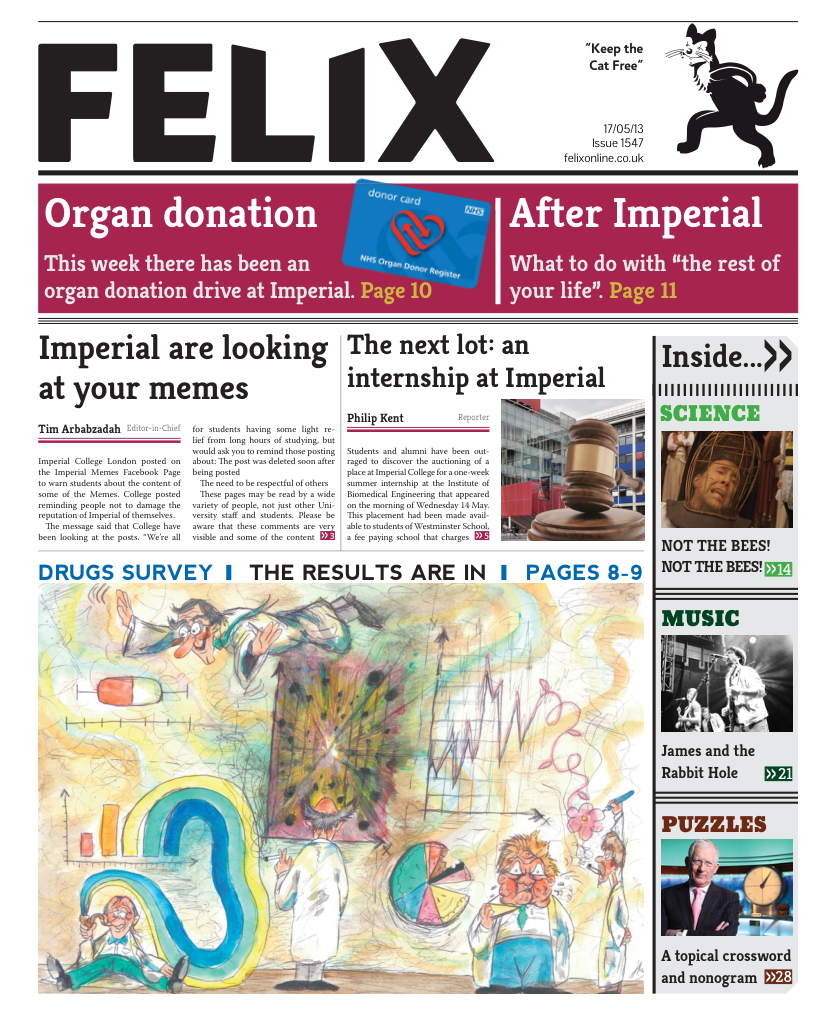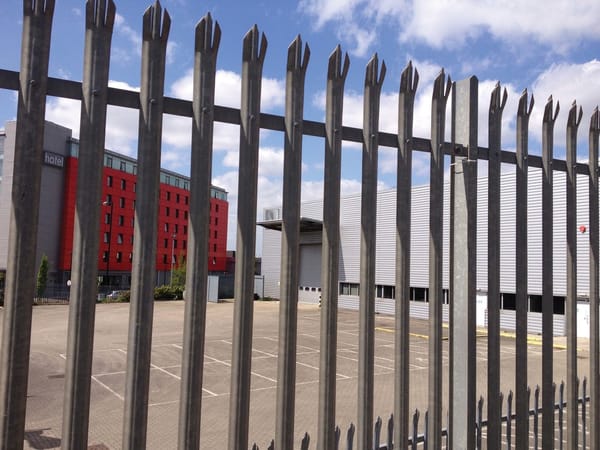How to decide what to do with “the rest of your life”
Mark Frederick gives you some tips on how to decide what you want to do post Imperial

Deciding what to do with ‘the rest of your life’ after graduation can be a daunting prospect. If you feel you have become pigeon-holed with too few opportunities available to you, or that you are capable of doing anything but don’t know how to choose which road to take, then this article is for you What follows should give you some perspective and suggest some simple steps towards getting a job after graduation, moving on to further studies or even doing something completely different.
Since leaving Imperial College London with an MEng (Hons) and then a PhD in Aeronautical Engineering, I have worked as a self-employed English teacher in Spain, as an occasional pianist and joined the Future Leaders Development Programme at Barclays in 2012 – see www.seemore-bemore.com. Although being an undergraduate and then a postgraduate feels like quite a long time ago now, I remember worrying about what I would do in the future. Sometimes it felt as though there were so many possibilities that I didn’t know which to choose, while on other occasions it felt as though there were very few roles for which I would be suited.
In my opinion, the key for making career choices is simple: identify the skills you enjoy using, the strengths you have and find the fields that correspond. Never forget that a high salary will not necessarily make you happy and that you are capable of choosing a different path to your friends.
Once upon a time I was an academic student doing Aeronautical Engineering, yet these days the most difficult mathematics I need on a daily basis is addition and the only time I think about aeroplanes is when I check in at an airport
When studying, it can be hard to remember that your skill set is just as important as your academic results. You may find that the set of skills you will use in a full-time job are very different from those you used at university: the prerequisites for academic success can be very different to the prerequisites for success in business. I adore my job, but doing it as well as I can is not a question of being the smartest person in the room or always knowing how to solve a problem on my own. It is a matter of knowing who can solve it, what support they will need to do it and how to get that support for them.
Once upon a time I was an academic student doing Aeronautical Engineering, yet these days the most difficult mathematics I need on a daily basis is addition and the only time I think about aeroplanes is when I check in at an airport. On the other hand, I now use interpersonal skills that I never learned in a lecture theatre, such as building up a professional network, knowing the skills of each person I you know and developing the skills to manage people. These different skills sets mean that it is important that you try to balance your studies with extra-curricular activities if that is where your strengths lie. Now I know that captaining a sports team, helping to organise a large university event or running a society would have developed skills far more valuable to my current employer than a hundred modules on helicopter dynamics.
For those of you graduating next year, set aside a little time over the summer and next year thinking about your next steps. Don’t hesitate too long to decide what jobs to apply for, as sometimes you will learn more about what you want to do during the application process. If you find yourself lacking motivation to complete an application form or disliking the people you meet from the business, it could be a sign that this path is not for you.
Here are some suggestions to help you get started:
- Identify the skills that you enjoy using and where your abilities lie. Are you fascinated by solving theoretical problems or do you prefer fixing broken go-karts? Is analysing and refuting written arguments your thing or are you much happier ad-libbing your points on a stage in front of an audience? If you need some help, ask your friends and family for the things that you do well. Be as clear as you can about the skills you have and the areas you want to develop. Don’t sell yourself short or focus only on your university studies: playing in a football team regularly requires teamwork and dedication, while organising university events requires leadership and the ability to prevent or solve last-minute problems. Employers value these skills, so let them know that you have them.
- Make use of the Careers Advisory Service, the internet and any friends who are already working to help you map out which jobs use the skills you have identified. Be clear on the skills you want to use; sometimes it can also help to be clear about the things that you don’t want to do. Use any work experience you have, from bar work to summer internships, to feed into this.
- Meet the people who work at the companies and in the sectors that you want to work in. Go to the Careers Fair at Imperial (or elsewhere) and speak to the people manning the stall. Ask yourself, ‘Is that the kind of person I would like to become’? Look for ‘meet and greet’ events for students, networking evenings or industry body events. Spending an hour or two speaking with people who have been working in your chosen industry for years, hearing what they enjoy and what they complain about too, can be a real eye-opener.
- Apply as early in the academic year as you can, even if you are not 100% certain about your choices. The longer you leave it, the harder it is to get onto the most popular graduate programmes or find the best direct-entry jobs. Speak to any friends you have who are already working – some companies even offer a reward to employees who recommend a friend who is offered and accepts the job.
Try and spend as much time as you reasonably can on this. It is your final year and you will be busy but, if you reflect on your skills and career choice to choose carefully and early, you will reap the rewards. Remember too that if in a few years’ time you decide that you want to do something else (within reason), you should be able to do that fairly easily. The career choices that you make now are not final – right now, you only have to make the best choices with the information available to you.
If you would like to read more about my Barclays experience and those of other graduates, please visit www.seemore-bemore.com. All of my views above are personal and not those of Barclays, so to get in touch with me, to share any comments on this article or to ask me any questions, please connect with me on LinkedIn.






